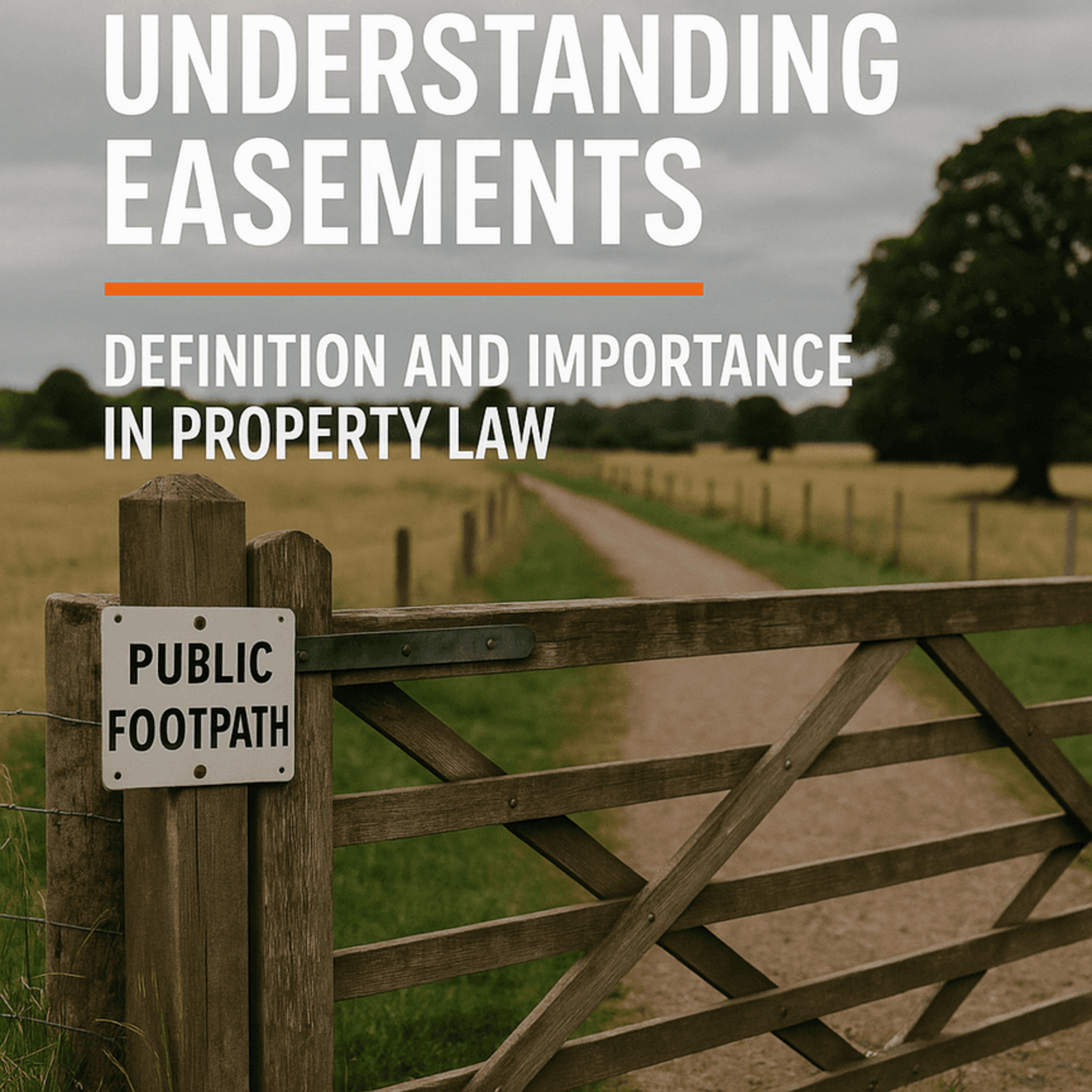Podcast Episode Details
Back to Podcast Episodes
Property Law Lecture Fifty-One – Easements: Creation, Scope, and Termination
Imagine buying a beautiful piece of land, only to discover that your neighbor has the right to cross it whenever they please. This scenario highlights the concept of easements, a crucial yet often misunderstood aspect of property law.
What is an Easement? An easement is a legal right to use another person's land for a specific purpose. It doesn't grant ownership but allows certain uses, such as access to a road or utility lines. Easements can be created by agreement, necessity, or long-term use.
Types of Easements:
Appurtenant Easements: These are tied to the land and transfer with property ownership. In Gross Easements: These are personal to an individual or entity and do not transfer with the land.
Importance in Property Law: Easements play a vital role in property law by balancing the rights of landowners with the needs of others. They ensure access and utility services, prevent disputes, and maintain property value. Understanding easements can help property owners protect their rights and avoid legal conflicts.
Conclusion: Easements are an essential part of property law, providing necessary access and utility rights while protecting landowners' interests. Whether you're buying, selling, or managing property, understanding easements can help you navigate the complexities of property ownership.
Subscribe Now: Stay informed about property law and other legal topics by subscribing today!
Easements are non-possessory interests allowing use of another's land.
The distinction between easements and licenses is crucial for property law.
Easements can be appurtenant (benefiting land) or in gross (benefiting a person).
Express easements are created through clear written language, while implied easements arise from circumstances.
Prescriptive easements are gained through long-term use without permission.
Easements can be terminated through various methods, including abandonment and merger.
Understanding the scope of an easement is essential for its use and enforcement.
Easements can significantly impact land development and property value.
Legal practitioners must conduct thorough due diligence regarding easements.
Easements balance private rights with public needs.
easements, property law, property rights, easement types, easement creation, easement termination, property law exam, legal principles, land use, real estate
Published on 3 months, 3 weeks ago